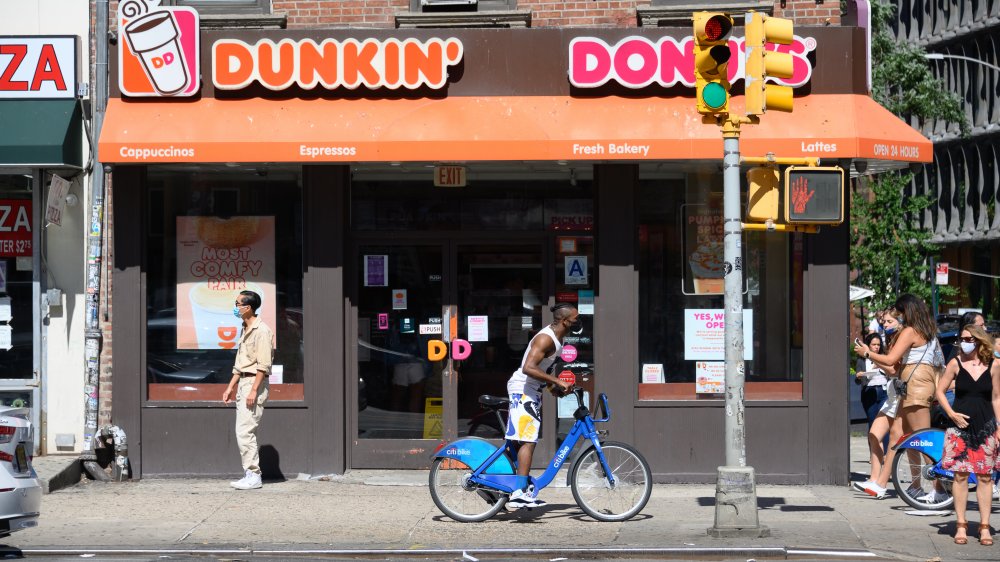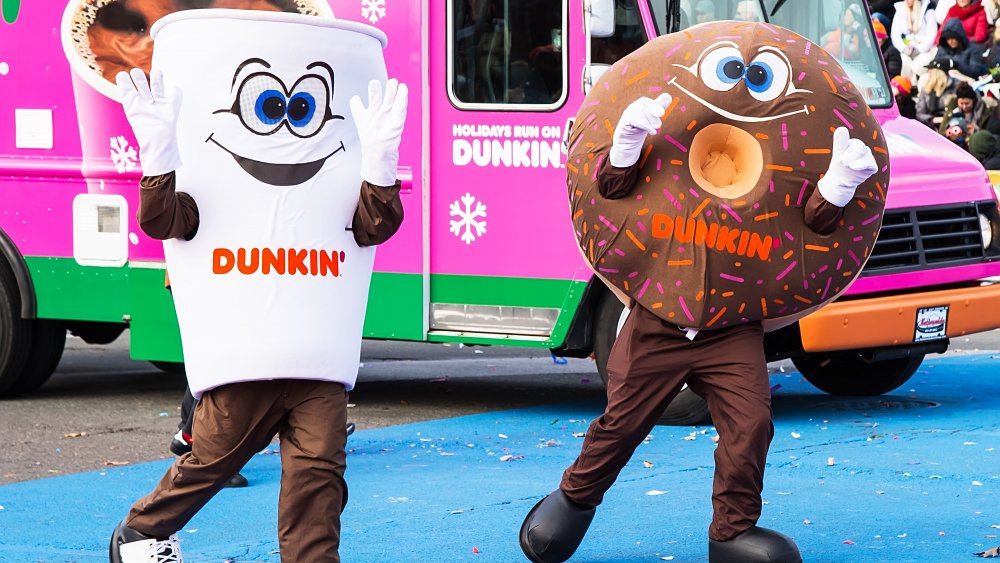The Real Reason You Probably Wouldn't Want To Work For Dunkin'
While not as notable as serving a side order of fries, working at Dunkin' remains an unsought gig. After all, no one really wants to spend a day as described in Cosmopolitan, which mostly consists of customers complaining to the interviewed team member for a variety of reasons. Besides the basic problems with interacting with people, the issues that plague employees at Dunkin' seem to arise from the weird relationship between a franchisor and franchisee.
Dunkin' is a franchise, which Merriam Webster defines as "the right or license granted to an individual or group to market a company's goods or services in a particular territory also." The relationship between the franchisor – in this case, Dunkin' corporate – and the franchisee, the particular outlet from which one retrieves their dangerous delight, plays out in a murky manner. In the SEC archives, there is a copy of a franchisement contract between DUNKIN' DONUTS FRANCHISING LLC and a potential franchisee. In it, Dunkin' states that while they set the standards for decor and food items, the franchisee maintains control over all employment decisions.
The separation between the actual Dunkin' brand and its franchisees means that Dunkin' has disputed liabilities over the rights of the workers toiling under its flagship. As a 2013 piece in the Financial Post explains, depending on how much or how little oversight the company brings to the outlet, the courts may decide that they bear no responsibility. As you may imagine, this can encourage a blind eye.
America runs from Dunkin'
The outcome of Dunkin's franchised state is best found in a series of lawsuits. In 2011, Boston Business Journal reported that a pair of Dunkin' franchises were sued for violating child labor laws by employing minors without permits and giving them shifts outside of their permitted hours. In 2016, Cook County Record recorded that another two employees were suing a different franchise for wage theft.
In 2018, the government of Massachusetts fined more than 60 Dunkin' Donuts stores for failing to comply with the state's Earned Sick Time Law. Later that year, Dunkin's corporate was called in to stop a manager of another business from keeping a sign asking customers to report any non-English speaking employees in the window, as reported by Eater. Then, for a final example, in 2019, Dunkin' itself sued nine of its franchises for not verifying whether their employees had work authorizations. Though, as Pacific Standard commented in its report, this was not unusual for the food industry.
The point is not that the brand itself is necessarily bad but that the off-hand approach Dunkin' takes to managing its franchised business – with their suing over a breach of federal law serving as an exception – means that there is no structure to hold the businesses to anything more than a loose standard. Each employee will be at the mercy of the caprices of their particular employer. Though, really, a union would do more to solve that.

